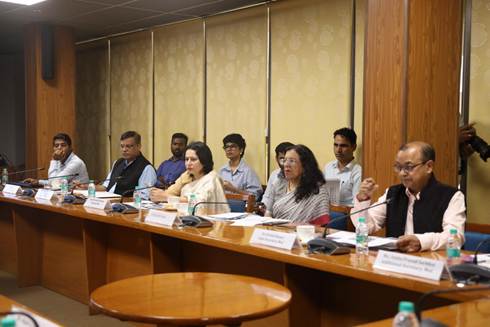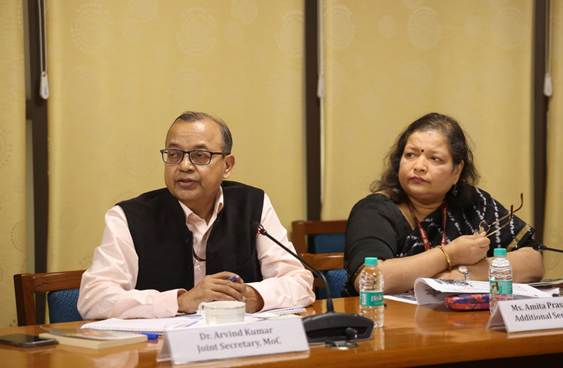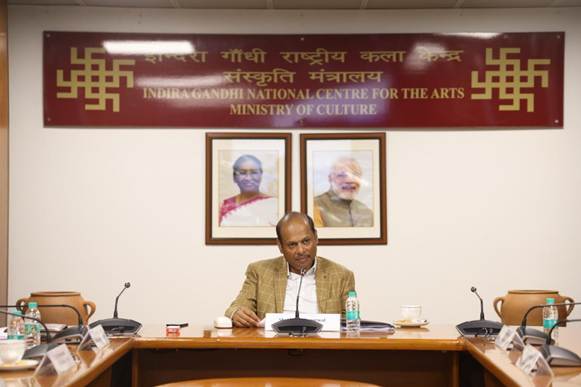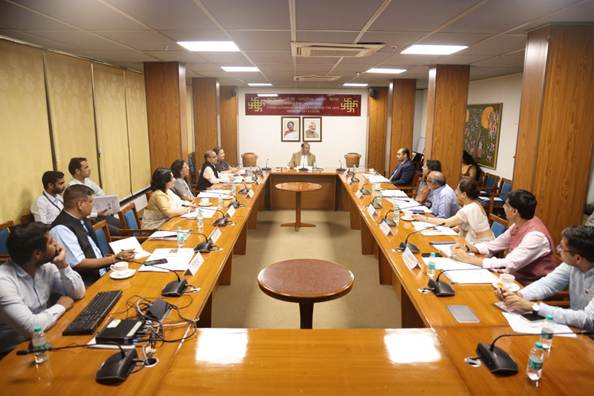The Ministry of Culture on Tuesday initiated consultations with international partners to secure the inclusion of Chhath Mahaparva in UNESCO’s Representative List of the Intangible Cultural Heritage of Humanity. The meeting, held at the Indira Gandhi National Centre for the Arts (IGNCA) in New Delhi, brought together senior diplomatic representatives from the United Arab Emirates, Suriname, and the Netherlands to discuss a multinational nomination under UNESCO’s 2003 Convention.
The consultations were chaired by Vivek Aggarwal, Secretary, Ministry of Culture, and attended by officials from the Ministry of Culture, Ministry of External Affairs, Sangeet Natak Akademi, and IGNCA. Representatives from the participating countries welcomed the initiative, acknowledged the festival’s cultural significance among diaspora communities, and assured full support for the nomination.
Later in the evening, the Culture Secretary held a virtual interaction with Indian envoys to Mauritius, Fiji, Suriname, UAE, and the Netherlands, who pledged cooperation in identifying communities and facilitating data for the nomination process.
Officials said that recognition of Chhath Mahaparva by UNESCO would not only highlight India’s rich living traditions globally but also ensure their systematic documentation and preservation for future generations. The move is also seen as a step to strengthen cultural pride among the Indian diaspora and deepen international cultural cooperation.
India currently has 15 elements inscribed on UNESCO’s Representative List of the Intangible Cultural Heritage of Humanity. The proposed multinational nomination of Chhath Mahaparva for the 2026-27 cycle is being viewed as another milestone in India’s cultural diplomacy and commitment to safeguarding intangible cultural heritage.
Chhath Mahaparva, dedicated to the Sun God and Goddess Chhathi Maiya, is among India’s oldest festivals and is widely celebrated in Bihar, Jharkhand, Uttar Pradesh, West Bengal, and by diaspora communities across the world. Known for its ecological ethos and emphasis on equality, the festival promotes sustainability, inclusivity, and community spirit, transcending caste, creed, and religion.

















